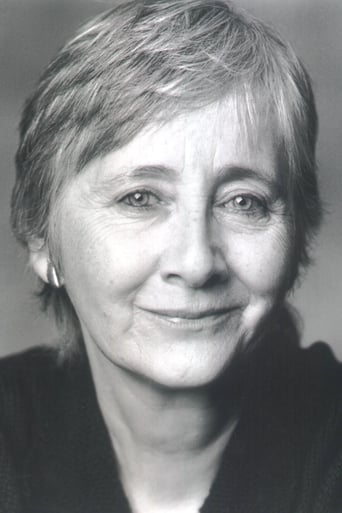Unlimitedia
Sick Product of a Sick System
SnoReptilePlenty
Memorable, crazy movie
Baseshment
I like movies that are aware of what they are selling... without [any] greater aspirations than to make people laugh and that's it.
JLRVancouver
1995's "Sense and Sensibility" is lovely look at the mores and manners of Regency England (at least as seen through the eyes of Jane Austin and scriptwriter Emma Thompson). The production is outstanding as is the script and the acting, especially Kate Winslet and Alan Rickman (and in a much smaller role, Hugh Laurie). I'm new to Austin's writings and the film versions of her books, but I thoroughly enjoyed this film.
Mihai Toma
After three sisters and their mother are sent away from their home by their greedy step-brother who inherited all the fortune, they are forced to live in a small remote cottage. Obviously, their salvation remains in marriage with a wealthier partner who can offer them a better life, but this aspect will prove to be much harder than expected, as the pretenders can hardly accept such poor wives.It's a movie which presents the difficult lives of three sisters who are forced to live in poverty after their father's death. Although they fall in love pretty soon after, their lovers leave them as sudden as they appeared, leaving them hopeless, especially due to their social position and lack of wealth. Although it had a quite interesting premise, the result proved to be a mixture of boredom and seemingly pointless events which ultimately lead to a predictable and unsatisfying happy ending. It left an impression that it simply lacked any perspective, with simplistic characters and action, bound to make you yawn at an alarming rate. While it's not a bad movie overall, it lacks a strong premise and overall suspense, which leaves you without any feelings for the characters and their unfortunate fate. It failed in attracting the viewer and convincing him that its characters deserve a better future than they have, thus leaving him (the viewer) without any satisfaction after the end.It's a below average movie which can be easily skipped.
Red-125
Sense and Sensibility (1995) was directed by Ang Lee. It's based on the novel by Jane Austen, with screenplay by Emma Thompson. It stars Emma Thompson as Elinor Dashwood, Kate Winslet as Marianne Dashwood, Hugh Grant as Edward Ferrars, and Alan Rickman as Colonel Brandon.Many people reading this review will be familiar with the Austen novel. It's a work of genius, and is as popular now as when it was written more than 200 years ago. The novel (and film) emphasizes the unhappy status of upper-class women in early 19th Century England. Gentlewomen had very few choices because they couldn't work outside the home, which meant that they were dependent on their husband for all things.Such is the case of the Dashwood sisters. By law, their father had to leave his home and fortune to his son by his first marriage. His widow and daughters received virtually nothing. They may have wanted to marry for love, but they had to marry someone who was able to support them. Sadly, everything pivoted around making a "good" marriage.Elinor Dashwood represented "sense," that is practicality. Marianne Dashwood represented "sensibility." Clearly, the meaning of this word has drifted after 200 years. For us, "sensibility" implies "sense." However, for Jane Austen, the work had a meaning closer to "sensitivity." The sister with sense is pragmatic, the sister with sensibility is romantic and impractical.Kate Winslet is charming as the sister with sensibility. Emma Thompson is a great actor, but I believe she is miscast. She looks more like Kate Winslet's mother rather than her sister. (Thompson was 36 when the film was produced.) Hugh Grant is well cast as Elinor's suitor. Alan Rickman is ideal as Colonel Brandon. (We think of Rickman playing the role of a villain, but he has a much broader range than that.)There are four Sense & Sensibility versions available on DVD. I've seen and reviewed the 1971 version, directed by David Giles, and the 2008 version, directed by John Alexander. There's another version, from 1981, directed by Rodney Bennett, which I haven't seen.It's very interesting to see how three different directors, working with three different casts, can give us three different versions of the same novel. It would be interesting--but tedious--to pick out the "best" Elinor, the "best Marianne," etc. However, there are real differences among the versions. It's the same novel, but it they're not the same movies.You'll have to see them all to make up your mind about which version you like best. Ang's Sense and Sensibility was meant for theaters, so something is lost on the small screen. Even so, it works well enough on DVD.. Find it and see it. You won't be disappointed.Note: Look for Hugh Laurie in a small supporting role. He's excellent.
markmuhl
What a wonderful period movie. How could I miss it for 20 years.To me personally the love story between Elinor and Edward (sense) is by far more touching than Marianne's with Willoughby or Colonel Brandon (sensibility). Elinor's emotional outburst in the end is so perfectly plaid by Emma Thompson that one could not think of the tiniest little bit that would make it any better.I also want to stress how wonderfully some of the underparts fit into the movie and how much they add to it by embedding the main story lines into a lively environment. Having not read the original novel I cannot tell how this is to be owed to Jane Austen, Emma Thompson or to both of them.I especially like Margaret (Emily Francois). In her natural and still quite unspoilt behaviour the youngest sister is building a bridge to us people of modern society and does make us feel more connected to the otherwise so far away appearing world of yesterday (although 200 years do not seem to be such great a distance). Apart from that, the acting performance of Francois is quite impressive. Almost every scene with her is bewitching like the one where she is so disappointed that Edward did not bring the atlas himself or the scene where she is stressing out that she likes Mrs. Jennings because Mrs. Jennings talks about things unlike her own family.Mrs. Jennings (Elizabeth Spriggs) herself is another example of a marvelous character. So annoying she seems to be in the beginning she turns out to be a really warmhearted and consoling person. I especially like her comments on her son-in-law Mr. Palmer like: "Mr. Palmer is so droll. He's always out of humour".Also her other son-in law Sir John Middleton (Robert Hardy) gives a very interesting character who cares only partly for the strict rules of behavior of his social class. Being a rather simple and straightforward "male" character he quite often does not really understand all the concerns of his female fellow people. This also may sound familiar to some of us. His comment on Elinors's favorite key in F major and his truthful joy about his own somewhat embarrassing joke alongside with Mrs. Jennings always make me laugh when seeing this scene.I also cannot share the opinion that Emma Thompson then was too old for Elinor's character. Her character straits, that is being sensible and guarded, are much more credible in someone who has already overcome the emotional confusions of the youth. Apart from that it is hardly imaginable that anyone else could have played Elinor's part better than Emma Thompson.To me this film offers so much: big emotions for the great romantics without being kitschy, a subtle sense of humour and deep insights into a past society. Thank you for this wonderful work.








